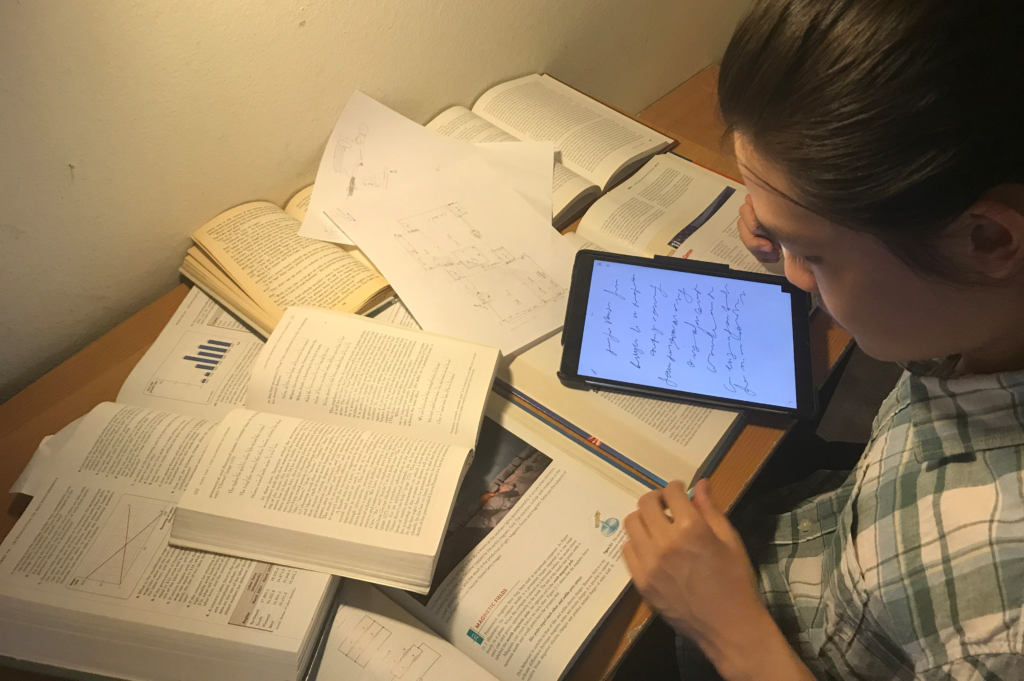By Josh Lee, Staff Writer

Sim peruses his carefully prepared notes on flight rules and federal aerospace regulations in preparation for the private pilot knowledge test.
Sitting down at his bedroom desk, senior David Sim flipped open his private pilot notebook and took note of key concepts and ideas. He checked on his online courses, making sure that he covered all the required material. As he read over a segment on aerodynamics and weather, he thought about how he could apply the ideas he learned to his other projects.
Sim is currently working towards earning his private pilot’s license. Similar to earning a driver’s license, aspiring pilots must pass a written knowledge test in a process called ground school.
Pilots in training must then undergo a medical exam and join a pilot school, requiring at least 40 hours of flight lessons. Finally, he is required to take an exam called a checkride to finally receive his pilot’s license.
Sim is currently studying at home in preparation for the online ground school exam, which will be held in the summer.
“During the pandemic, I needed to find some way to stimulate my brain outside of school,” Sim said. “I’ve always been interested in a pilot’s license because it’s not only a route for recreational activities but also a potential future career, but I was always on the edge of whether I should do it or not. Then, one of my friends actually approached me about it and I went ‘This is the sign I was looking for’.”
Sim’s pilot’s license is the latest amongst a slew of other licenses. Aside from his pilot’s license, Sim already has his driver’s license, boating license and forklift license. He plans on using his licenses recreationally and as methods of travel once he enters college, such as boating with friends or flying home from out-of-state.
“Part of the reason why I got my boating and forklift license is because you never know when you’re going to need this stuff in the future,” Sim said. “It’s always good to experience these things even if you’re never going to use it. I personally find that if I focus on things in multiple directions I get more fulfillment.”
Sim applies his new knowledge in aviation and weather towards computer science projects, and is currently working on an art project based on graphs generated by aerodynamics simulations of random objects.
Sim plans on double majoring in psychology and computer science, as well as piloting as a secondary career choice.
“One of my learning philosophies is that just because you’re into a certain field doesn’t mean you can’t learn something else,” Sim said. “The colleges that I look for are interdisciplinary ones where you get to use different skills from different areas of study and combine them together to make something that’s bigger than the areas by themselves. I’m sure that the knowledge that I gained from learning how to pilot planes will come in handy in the future.”
